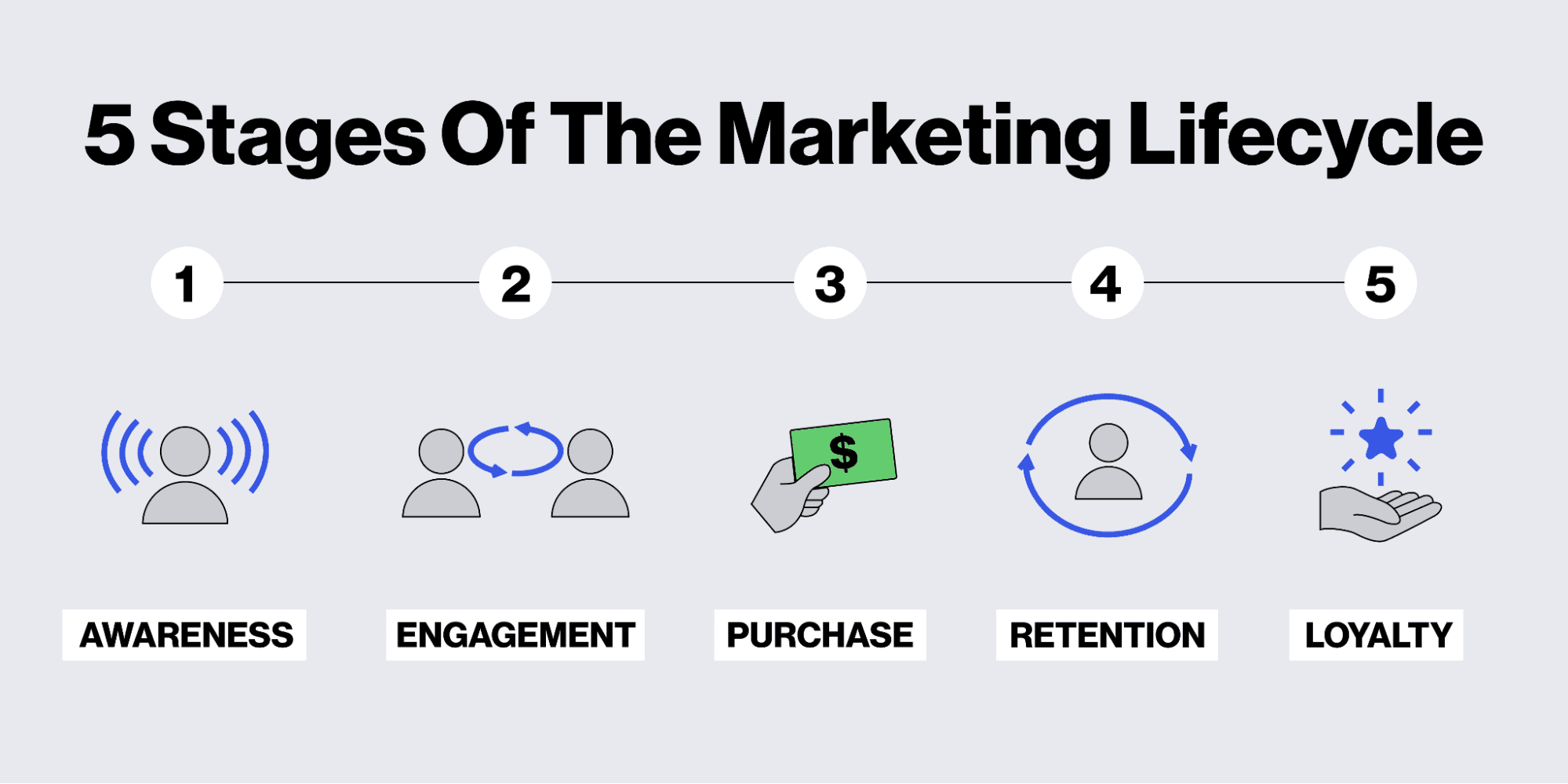min to read
Jan 1, 2024
In today's competitive business landscape, customer engagement is the key to building strong, long-lasting relationships with your audience. Lifecycle marketing, a process of engaging customers throughout their journey with your brand, has become essential for businesses to stay ahead of the curve. With the advent of Artificial Intelligence (AI), lifecycle marketing has been revolutionized, enabling businesses to deliver highly personalized and relevant experiences to their customers.

AI-Powered Lifecycle Marketing
AI has transformed customer retention and lifecycle marketing by enabling businesses to better understand and engage with their customers. Some ways AI enhances lifecycle marketing include:
Data Analysis: AI can analyze vast amounts of customer data, including behavior, preferences, and interactions with your brand, enabling marketers to gain valuable insights into customer journeys.
Predicting Customer Churn: AI can help predict customer churn before it happens, allowing businesses to take proactive measures to retain valuable customers and reduce attrition.
Personalization: AI algorithms help identify patterns that can be used to boost client engagement and satisfaction levels, raising conversion rates for businesses.
Dynamic Product Recommendations: AI-driven solutions, such as predictive analytics and machine learning, help companies better analyze customer behavior and anticipate their needs, leading to more successful lead generation and marketing efforts.
Stages of Predictive Marketing Analytics Implementation
Every data analytics project is unique, not only due to the high level of customization in each case, but also because of the distinctive data sets that each company uses as input. However, most implementations of predictive analytics for marketing can be summarized into the following stages:
Data Collection: Gathering relevant customer data, including behavior, preferences, and interactions with your brand.
Data Analysis: Using AI algorithms to analyze the collected data and identify patterns, trends, and insights.
Predictive Modeling: Developing predictive models based on the insights gained from the data analysis to anticipate future customer behavior.
Personalization: Creating personalized messages and offers based on the predictive models to improve customer engagement.
Automation: Implementing AI-driven automation to streamline the process of delivering personalized messages and offers to customers.
Use Cases of Predictive Analytics in Lifecycle Marketing
Predictive analytics has a wide range of applications in lifecycle marketing, including:
Product Development: Predictive analytics can help companies accurately predict which products will be in demand in the future, allowing them to make informed decisions about product development and allocation.
Targeted Campaigns: By analyzing customer data, marketers can create personalized messages and offers that resonate with their target audience, improving customer engagement and conversion rates.
Customer Retention: AI can help predict customer churn before it happens, enabling businesses to take proactive measures to retain valuable customers and reduce attrition.
Cross-Sells and Up-Sells: AI can analyze customer behavior and preferences to identify opportunities for cross-selling and up-selling, leading to increased revenue and customer satisfaction.
Customer Segmentation: Predictive analytics can help marketers identify specific customer segments based on their predicted lifetime value, allowing them to tailor their marketing efforts to these segments for maximum impact.
Conclusion
AI-powered lifecycle marketing is a game-changer for driving customer engagement and fostering brand positioning for long-term success in the ever-evolving digital landscape. By leveraging AI algorithms for data analysis, personalization, predictive analytics, and automation, businesses can deliver highly personalized and relevant experiences to their customers, ultimately leading to improved customer satisfaction, brand loyalty, and business growth. As AI continues to advance, its role in lifecycle marketing will become increasingly important, making it essential for businesses to embrace this technology and adapt to the changing marketing landscape.




